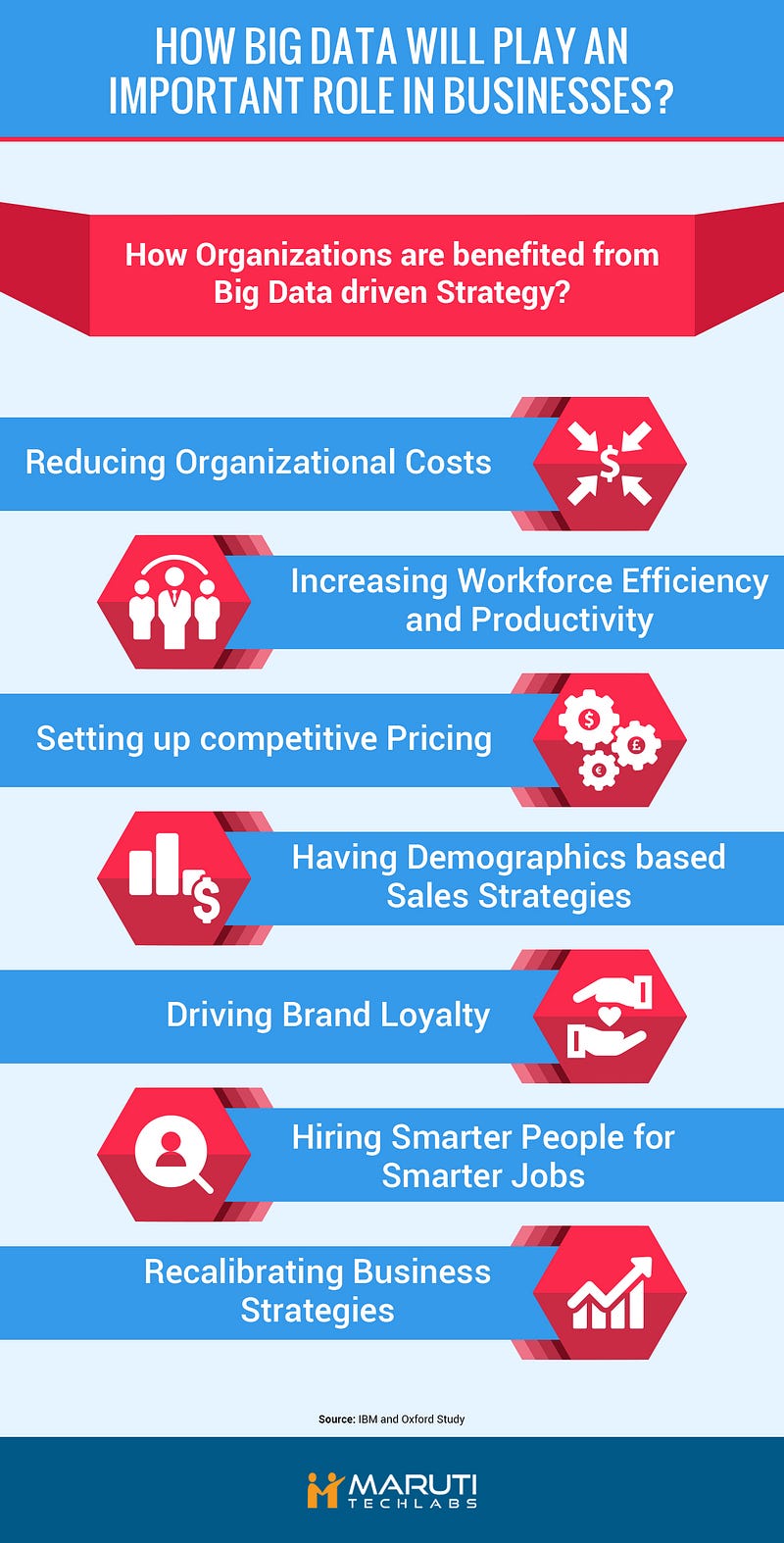Big data analytics plays a significant role in organizational efficiency. The benefits that come with big data strategies have allowed companies to gain a competitive advantage over their rivals — generally by virtue of increased awareness which an organization and its workforce gains by using analytics as the basis for decision making. Here is how an organization can benefit by deploying a big data strategy –

Reducing organizational costs
Big data solutions help in setting up efficient manufacturing processes, with demand-driven production and optimum utilization of raw materials. Automation and use of AI to reduce manual work is another way of achieving cost efficiency in production and operations. Further insights into sales and financial departments help managers in developing strategies that promote agile work environments, reducing overall organizational costs.
Increasing workforce efficiency and productivity
Data-driven decision making is helpful in boosting confidence among the employees. People become more pro-active and productive when taking decisions based on quantifiable data instead of when asked to make decisions by themselves. This, in turn, increases the efficiency of the organization as a whole.
Setting up competitive pricing
As evidenced earlier in this post, creating differentiated pricing strategies are known to help develop competitive pricing and bring in the associated revenue benefits. Also, organizations can tackle competing for similar products and services by using big data to gain a price advantage.
Having demographics based sales strategies
Demographics divide most markets, but there are even deeper divides that exist in customer classification. Big data analytics can help categorize customers into distinct tiers based on their likelihood of making a purchase. This gives sales reps more solid leads to follow and helps them convert more. Furthermore, when sales and marketing are based on big data insights, it is likely that the sales reps are intimated with a potential customer’s tendencies and order histories — driving up the rep’s advantage.
Driving brand loyalty
Customers are likely to respond more to relationship-driven marketing. Using data analytics, organizations can leverage their prior knowledge of a client’s needs and expectations and offer services accordingly. Thus, significantly increasing the chances of repeat orders and establishing long-term relationships.
Hiring smarter people for smarter jobs
Using big data technologies has become a useful tool for HR managers to identify candidates by accessing profiled data from social media, business databases and job search engines. This allows companies to hire quickly and more reliably than traditional hiring techniques which always have an element of uncertainty. Also, when organizations are using analytics across all platforms, it becomes imperative for them to hire candidates who are in sync with their policy.
Recalibrating Business Strategies
Big data strategies not only provide better decision-making powers to organizations but also give them the tools to validate the results of these decisions. Organisations can recalibrate their strategies or scale according to newer demands using these tried and tested business strategies.
Conclusion
There is no doubt that Big Data technology will continue to evolve and encompass more fields in the coming years. As the rate of data generation increases, even smaller enterprises will find it hard to maintain data sets using older systems. Analytics more than anything will become the guiding principle behind the business activity. Moreover, companies will need to be more automated and data-driven to compete and survive. The evolution of artificial intelligence with technologies like machine learning and smart personal assistants is also heavily reliant on big data. The role they will play in the future of business management, manufacturing processes, sales and marketing, and overall organizational remains to be seen.